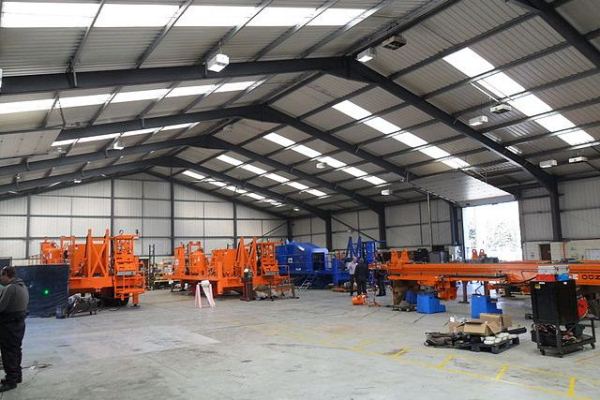Manufacturing conditions in the Association of Southeast Asian Nations (ASEAN) deteriorated in June 2019 as employment fell at its quickest pace in 20 months and output recorded only marginal growth, according to the IHS Markit Purchasing Managers’ Index (PMI).
The PMI fell below the crucial 50.0 mark separating improvement from deterioration, posting 49.7 in June, down from 50.6 in May. It was the first slowdown at ASEAN manufacturing firms in four months, but was only fractional. In fact, five of the seven monitored countries continued to report stronger business conditions, although three of these saw growth weaken compared to the previous month.
David Owen, economist at IHS Markit, said: “The run of weak growth at ASEAN firms ended in June, as latest data signalled a slight deterioration in operating conditions spurred on by weak demand and falling job numbers. It was the third decline seen so far this year, reflective of a struggling global manufacturing industry.”
Myanmar recorded a solid improvement in the health of its manufacturing sector (53.0) with sharp expansions in output and new orders. Vietnam also saw a strong improvement in operating conditions, with the joint-highest reading (52.5) seen in the year to-date.
The Philippines reported a subdued rate of growth (51.3), amid slower demand and an extended period of falling employment. Thailand also saw growth hampered by a drop in workforce numbers, posting a slightly lower reading (50.6) from May despite a faster expansion in output. Indonesia saw a similarly weak rate of improvement (50.6) after rising to a nine-month high in the previous month.
Malaysia recorded a ninth successive month of deterioration in manufacturing conditions (47.8), with the pace of contraction accelerating from May. Singapore’s manufacturing sector posted the sharpest downturn in operating conditions (42.9) since the series began.
ASEAN’s overall manufacturing sector struggled in June, as employment dropped for the first time in 15 months. The rate of job losses was marginal and yet the most marked since October 2017. Thailand and the Philippines saw the sharpest contractions in staff numbers, attributed to not replacing voluntary leavers.
Output growth was marginal during June, said IHS Markit, a global industry and market data, analytics, and insight service provider. Firms were restrained by demand weakness amid a renewed drop in new orders from abroad. Domestic sales helped to ease the impact on producers, leaving the total amount of new work relatively unchanged.
After two months of broadly unchanged international sales volumes, companies reported a slight drop in export orders in June, said Owen.
“This may be in reaction to higher tariffs in the US-China trade war, as businesses reorganise their buying activity. However, it remains to be seen what long-run effect the new tariffs have on the region, with some commentators suggesting a more positive impact should Chinese firms shift their trade to ASEAN countries,” he said.
Finally, business sentiment for future output remained upbeat in June. Despite slipping from May’s 30-month high, the level of optimism was still stronger than throughout much of the past two years. Indonesian firms were the most positive, while Singaporean businesses held a negative outlook for the first time in over two years.
Photo: Energold-company









